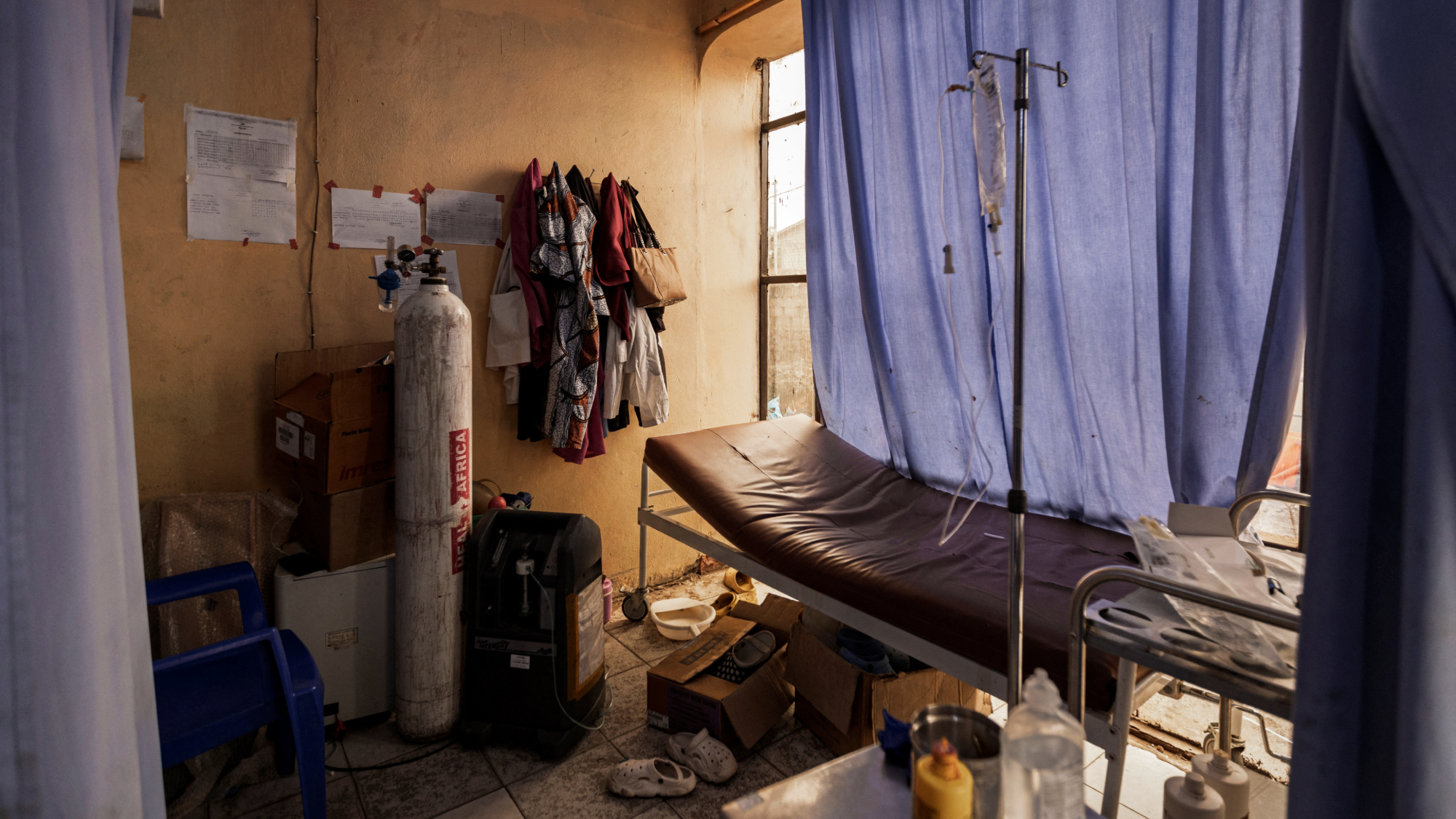Mystery illness spreading in Congo rapidly kills dozens
The World Health Organization said 53 people have died in an outbreak that originated in a village where three children ate a bat carcass


A free daily email with the biggest news stories of the day – and the best features from TheWeek.com
You are now subscribed
Your newsletter sign-up was successful
What happened
At least 53 people have died in two clusters of an unknown illness in the Democratic Republican of Congo, the World Health Organization said Tuesday. The outbreak, in Equateur province, was traced back to three children under age 5 in one village who had eaten a dead bat. The children, like a significant portion of the other fatalities, had symptoms similar to a hemorrhagic fever — nosebleeds, diarrhea, fever and vomiting blood — and died within 48 hours.
Who said what
The WHO said that with 431 cases as of Feb. 16 and a fatality rate of 12.3%, the outbreak posed a "significant public health threat." All 18 samples sent to Kinshasa for testing came back negative for common hemorrhagic fever diseases such as Ebola and Marburg, the WHO said, and the "exact cause remains unknown." The short interval between the onset of symptoms and death is "really worrying," Serge Ngalebato, the medical director of the regional Bikoro Hospital, said to The Associated Press.
What next?
A "genuinely new illness" sometimes emerges, as with Covid-19, "but it is very rare," Michael Head, a global health researcher at Britain's University of Southampton, said to The Washington Post. The spread of "hemorrhagic fever–like symptoms" in a country with poor public health infrastructure is "concerning," but usually it turns out to be "a bug" that "we know about." A flu-like disease that killed dozens in southwestern Congo in December was later determined to have been caused by malaria.
The Week
Escape your echo chamber. Get the facts behind the news, plus analysis from multiple perspectives.

Sign up for The Week's Free Newsletters
From our morning news briefing to a weekly Good News Newsletter, get the best of The Week delivered directly to your inbox.
From our morning news briefing to a weekly Good News Newsletter, get the best of The Week delivered directly to your inbox.
A free daily email with the biggest news stories of the day – and the best features from TheWeek.com
Peter has worked as a news and culture writer and editor at The Week since the site's launch in 2008. He covers politics, world affairs, religion and cultural currents. His journalism career began as a copy editor at a financial newswire and has included editorial positions at The New York Times Magazine, Facts on File, and Oregon State University.
-
 Political cartoons for February 15
Political cartoons for February 15Cartoons Sunday's political cartoons include political ventriloquism, Europe in the middle, and more
-
 The broken water companies failing England and Wales
The broken water companies failing England and WalesExplainer With rising bills, deteriorating river health and a lack of investment, regulators face an uphill battle to stabilise the industry
-
 A thrilling foodie city in northern Japan
A thrilling foodie city in northern JapanThe Week Recommends The food scene here is ‘unspoilt’ and ‘fun’
-
 Scientists are worried about amoebas
Scientists are worried about amoebasUnder the radar Small and very mighty
-
 A Nipah virus outbreak in India has brought back Covid-era surveillance
A Nipah virus outbreak in India has brought back Covid-era surveillanceUnder the radar The disease can spread through animals and humans
-
 Trump HHS slashes advised child vaccinations
Trump HHS slashes advised child vaccinationsSpeed Read In a widely condemned move, the CDC will now recommend that children get vaccinated against 11 communicable diseases, not 17
-
 Deaths of children under 5 have gone up for the first time this century
Deaths of children under 5 have gone up for the first time this centuryUnder the radar Poor funding is the culprit
-
 A fentanyl vaccine may be on the horizon
A fentanyl vaccine may be on the horizonUnder the radar Taking a serious jab at the opioid epidemic
-
 Health: Will Kennedy dismantle U.S. immunization policy?
Health: Will Kennedy dismantle U.S. immunization policy?Feature ‘America’s vaccine playbook is being rewritten by people who don’t believe in them’
-
 Stopping GLP-1s raises complicated questions for pregnancy
Stopping GLP-1s raises complicated questions for pregnancyThe Explainer Stopping the medication could be risky during pregnancy, but there is more to the story to be uncovered
-
 More adults are dying before the age of 65
More adults are dying before the age of 65Under the radar The phenomenon is more pronounced in Black and low-income populations
